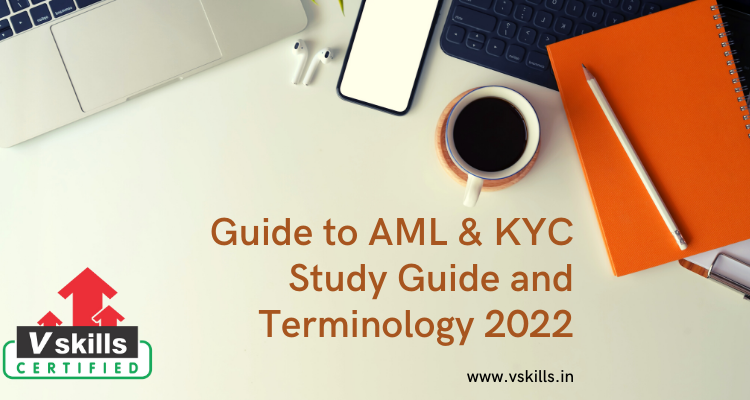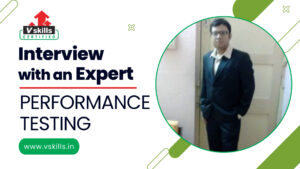So before we begin with the AML KYC Study Guide and Terminology 2022, we would like to ask our readers: have you decided to enter the career path of an AML-KYC Compliance Officer in India? Are you trying to figure out the best first step of your journey? Out of the umpteen number of choices available in our country, in this guide for AML and KYC study and preparation, we shall try to decipher a path that can fulfil all your needs through one platform! To start with, we shall take a look at an introduction to the terminologies of AML and KYC, followed by emphasizing the need for and guiding you on the path to a certification in the said field.
Introduction and Overview to AML and KYC
Advances in technology and its application have connected businesses with clients across the globe, transcending the barriers of language and culture, and giving rise to unforeseen opportunities. However, it has also contributed to a significant increase in the risks and complexities involved in doing business across the world. Organizations today are under a growing pressure to abate the threat of terrorism and financial crime done through using them as a channel. In doing so, organizations need to identify, analyse, and know exactly who they are doing business with.
AML and KYC, as some of you may already be aware, are abbreviations for Anti-Money Laundering and Know Your Customer respectively. AML and KYC norms are mandatory procedures comprising of various procedures in verification, monitoring, and cross-check, as per law to lessen the risks of banks and financial companies from being used for financial crimes. These norms have become a necessity for healthy financial relationships by the banks or financial institutions in India.
The terms AML and KYC mean two different things – while KYC is an identity verification procedure used to ensure that customers are actually who they claim to be, AML is the umbrella term for the full framework or set of mechanisms used to combat money laundering. Full AML operations are implemented to help intercept financial crimes either during or before its occurrence. These efforts can be expensive and time-consuming, however, at the same time KYC procedures are not exclusively sufficient to achieve the goal. Thankfully, the use of technology is rising to meet these demands.
What is Know Your Customer (KYC)?
Know Your Customer (KYC) is one of the numerous AML mechanisms devised to meet regulatory compliance. It is an organization’s responsibility to report documentation and prove its KYC compliance. Any failure in doing so, risks the organization in financial, reputational, and judiciary terms. As mentioned earlier, it is predominantly an identity verification mechanism, primarily to enable organizations to differentiate between favourable and unfavourable clients.
The basic objectives of gathering KYC information while using a risk-based approach are: to identify the client, verify his/her true identity, understand the client’s activities and sources of funds, and monitoring the client’s activities.
KYC Compliance Framework
As an example, the steps involved in the KYC procedure are Identification, Liveness Check, Verification of Identity, Verification of Address, Risk Scoring, etc. The KYC Compliance Framework – which enables making faster decisions for potential customer or organization, helps in automating the KYC process, and allows organizations to be a step ahead of the regulations – consists of three steps:
- Customer Identification
This involves verifying and inspecting all available information of the customer for any inconsistencies.
- Customer Due Diligence (CDD)
CDD is a set of checks performed when establishing a new customer relationship, or when an existing customer carries out a transaction. It involves collecting all the available data about the customer from reliable sources, determining the purpose and key beneficiaries of the relationship, and ongoing monitoring of the relationship to ensure consistency in all activities with recorded customer information.
- Enhanced Due Diligence (EDD)
These measures are required if the customer is considered to be of a higher risk than expected, and includes more intense monitoring and deeper investigative research of the relationship.
Any AML-obligated institution has no exception but to perform the KYC procedures. However, KYC can also be useful for other businesses too, as it can help filter out mistrustful and risky individuals, suppliers, and platforms.
What are the AML Compliance Requirements?
AML compliance includes KYC compliance as one of its requirements and is a lot more comprehensive. Under the Prevention of Money Laundering (PML) Act, the financial institutions and intermediaries including non-banking financial companies (NBFCs), stockbrokers, and payment system operators are required to adhere to requirements of maintaining transaction records for transactions of a prescribed nature, and above certain thresholds. The PML Act also includes financial service providers, gaming businesses, and casinos in the list of sectors in India that need to ensure AML compliance.
Tips for AML Compliance
- Staying Informed
It is of utmost importance to be aware of new developments, understand them, and to ensure that these are followed across the organization.
- Knowing Your Customer
A comprehensive KYC compliance framework such as the one discussed above is essential
- Building a Responsible Organizational Culture
Implementing a culture of ethical practice in the organization, communicated from the top down, is important. Regular training of all employees of the organization, and a strong involvement of the board members and top management is essential.
- Assessing and Quantifying Risk Comprehensively
Take a broader approach to risk, considering the policy towards affiliate businesses and partnerships
Regulatory Authorities for AML-KYC in India
The Ministry of Finance, The Directorate of Enforcement in the Department of Revenue is responsible for investigating money laundering offenses. The Anti-Money Laundering framework is regulated in India by the Financial Intelligence Unit-India (FIU-IND), established in 2004 as the apex body for coordinating India’s AML efforts (an organization under the Department of Revenue, Government of India to which the businesses with AML obligations report). The duty of the FIU-IND is to receive, process, analyse, and circulate information to the enforcement agencies and foreign FIUs, regarding suspected financial transactions. The Reserve Bank of India (RBI) too has an important role to play and has issued the regulatory guidelines on Know Your Customer (KYC) norms/Anti Money Laundering (AML) standards in 2005.
Why should one pursue an AML-KYC Certification?
The mission of any AML-KYC certification program is to develop highly skilled and professionally qualified banking and financial professionals by the process of education, training, and examination to enable a study of both theory and practice of AML-KYC.
Moreover, certifications promote the culture of continuous professional development and research that is undertaken to enhance the knowledge of professionals in operations, products, processes, tools and techniques deployed in banking and finance. It also encourages innovation and creativity and prepares every professional to face stiff competition and succeed.
Benefits of the Vskills AML-KYC Compliance Officer Certification
Owing to the security risk that money laundering poses to both the country and the world, AML and KYC operations have assumed added gravity in maintaining the financial health and reputation of the institutions within the Banking and Financial Sector. The Vskills AML-KYC Compliance Officer Certification – one of the first in this area of Banking sector – helps in finding employment in these organizations. The Certification improves the quality of compliance with the RBI Directions in combating illegal financial operations. Also, it is a useful addition to the CV of students desirous of entering a career in the AML-KYC domain.
The benefits of Vskills certification programs also include:
- Certifications have a Government Verification tag
- Certifications are Valid for Life
- Candidates get Lifelong e-Learning Access
- Candidates get tagged as ‘Vskills Certified’ on monsterindia.com and shine.com
Course Syllabus
The Vskills AML-KYC Compliance Officer Certification covers the following key areas of the subject:
- Introduction to Money Laundering
- Methods and Process of Money Laundering
- Legislation and International Cooperation
- Role of Correspondent Banking
- Know Your Customer (KYC)
- KYC Operating Guidelines
- Internal Control and Structure in Banks
- Customer Risk Categorization (CRC)
- Reporting Obligations
- Transaction Monitoring
- Staff and Customer Awareness
- KYC Updation
Features of the Vskills Certification program
- Online LMS: the online Learning Management System provides candidates access to the regularly updated e-book with practice quizzes for exam preparation which can be used for a lifetime. Hard copy study material is also sent to the candidate for superior learning support. The primary purpose of the study material is for the learners to obtain a thorough understanding of the concepts.
- Online Examination: the test for certification comprises of 50 multiple choice questions with 4 options each, and with No negative marking, which needs to be answered in a time not exceeding 60 minutes. A candidate is required to score a minimum of 25 marks to clear the examination to obtain the certificate. The test can be taken online from the convenience of one’s home or office, and at any time.
- Tutorials: Tutorials and Blogs provide the candidate with an avenue to take steps beyond the prescribed course curriculum and enhance his/her industry awareness.
- Practice Tests: The practice tests provided by Vskills is a very useful resource for an improved preparation and helps in understanding areas that need to be revised further for bettering the score in the examination.
- Interview Questions: The latest, relevant, and a list of comprehensive questions and answers are provided to help candidates prepare for the AML KYC interviews. These questions, if practiced well, can improve the candidate’s confidence level to ace any of the technical interview situations.
- Job Openings and Internships in AML-KYC: Vskills has a dedicated job portal for all of its candidates. Students can also opt for a Research based internship with Vskills.
Process for Certification
- Select the Certification and Register
- Receive the online LMS access and Hard Copy study material
- Take the exam online anywhere, anytime
- Get Certified!




